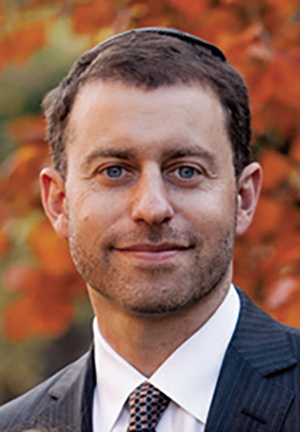
Yaakov is a naturally outgoing child. His parents chose to send him to a local day school mostly because of where their friends were sending their own children. Yaakov’s parents asked the school to place Yaakov in class with his close friends. He plays exclusively with these friends, as they live in his neighborhood, and his parents often pre-arrange Shabbat playdates on Wednesday or Thursday. This summer he will attend the same summer camp as these same friends as well.
Yaakov’s parents invited a family that is new to the community for Shabbat lunch. Yaakov asked his parents if he could go to a friend’s house for lunch, rather than stay home with his parents and the new family. Yaakov’s mom told Yaakov that he needed to stay at home because the visiting family was new and had a son his age. Yaakov did not interact with the new boy at all over the course of Shabbat lunch and Yaakov’s parents became frustrated with this behavior.
This past Wednesday, Yaakov’s teachers assigned a group project and Yaakov was partnered with students outside of his social clique. Yaakov was visibly disappointed, acted out and created an embarrassing situation for the students he was partnered with. Yaakov’s work began to suffer as a result of his inability to cope with the situation.
Last week, Yaakov was supposed to call and interview a scientist for his science project. He had tremendous anxiety over this assignment and felt very uncomfortable being forced to interact with someone he did not know.
Last Shabbat, Yaakov’s close friends were not around. There were many children playing outside, including some children his age, but he preferred to stay indoors.
The Problems With Limited Social Circles
While Yaakov’s case study is an extreme, I find that parents do their children a disservice by facilitating and reinforcing social cliques in an attempt to find short-term happiness for their children.
People tend to gravitate towards individuals with similar interests, ideologies or political perspectives. While this phenomenon is helpful in creating traditional communities where our values are reinforced and supported, there are drawbacks as well.
Our children will encounter drama in their social circles. Research has shown that students who are better able to reach across diverse groups tend to feel less vulnerable, less lonely and safer. Children who are part of a strong clique of friends and have boxed out all other children will have an exceptionally hard time when they encounter the inevitable challenges that occur in most friendships.
Children who reach beyond their inner social circle also tend to develop a better sense of empathy and understanding. Consider how impressed we are with the child or the adult in the room who searches out new people, introduces themselves and makes those around them feel comfortable and welcomed.
As our children grow, the importance of a high emotional intelligence quotient will become more pronounced. They will need to adapt to new environments with ease. They will need to handle new clients or patients with warmth and comfort. Equipping them with versatile social skills when they are young will ensure that they are not awkward or uncomfortable with outsiders as adults.
Research has also shown that a top indicator of success in life is the ability to move comfortably between different networks or clusters of friends. Being the most connected person is not productive if one’s network is made up of the same cluster of people. By interacting with a diverse group of individuals, one is exposed to various ideas and ways of thinking that enable success in life and in business.
This challenge, while not unique to Bergen County, is quite pronounced in our community. We should not be surprised. Studies have shown that students in smaller schools tend to have more diverse friends. In a larger environment, where there is a larger pool of potential friends, students will choose to interact with other children who are similar to them.
Helping Our Children
We need to encourage our children to make new friends. We can still encourage and support their friendships with their inner circle. But let’s consider expanding that circle. Invite children who your child has not yet interacted with for playdates. Think about camp as an opportunity for your child to meet new friends from around the country. If your child has a group of school friends and a different group of shul friends, view this as a great learning opportunity for them, one that will better prepare them for life. Some of these actions may be difficult but they will serve our children well in the long run.
By Rabbi Daniel Alter
Rabbi Daniel Alter is Head of School at The Moriah School.










